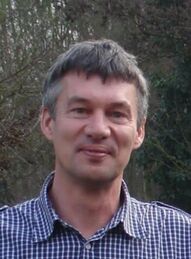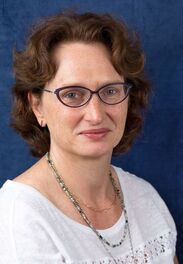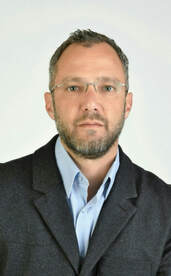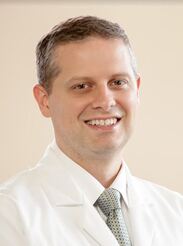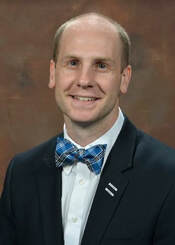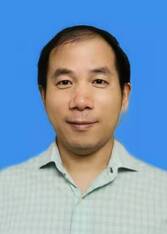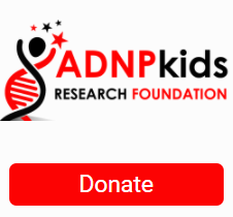MEDICAL & SCIENTIFIC ADVISORY BOARD
We are the process of updating our Medical and Scientific Advisory Board. A Medical and Scientific Roundtable is being planned where the team of current ADNP researchers can advise the foundation as to how to assemble a non-bias MSAB. If you are interested in service on our MSAB The Medical & Scientific Advisory Board (MSAB) serves in an advisory capacity to the ADNP Kids Research Foundation and provides strategic input, insight and expertise to the ADNP Kid's Research Foundation Board of Directors. The mission, goals and advisory role is strategically aligned with the ADNP-KRF.
|
Matt Might, Ph.D.
Dr. Matt Might has been the Director of the Hugh Kaul Precision Medicine Institute at the University of Alabama at Birmingham since 2017. At UAB, Matt is the Hugh Kaul Endowed Chair of Personalized Medicine, a Professor of Internal Medicine and a Professor of Computer Science. From 2016 to 2018, Matt was a Strategist in the Executive Office of the President in The White House. In 2015, Matt joined the faculty of the Department of Biomedical Informatics at the Harvard Medical School, first as Visiting Professor and since 2017 as Senior Lecturer. Matt is co-founder and Chief Scientific Officer of NGLY1.org, and he was a co-founder and Scientific Advisor to Pairnomix. Q State Biosciences acquired Pairnomix in October 2018 and Matt remains a Scientific Advisor and Board Member. |
|
Frank Kooy, Ph.D.
Dr. Frank Kooy is a Professor in Cognitive Genetics at the University of Antwerp in Belgium. His group was the first to discover that mutations in the ADNP gene cause autism in a subset of patients. More recently, Dr. Kooy and his team described a comprehensive overview of the clinical manifestation of ADNP syndrome. Although ADNP Syndrome is the more common secondary name for the syndrome, it was officially named Helsmoortel Van der Aa syndrome when the disease was originally discovered, named after the PhD student and the clinician from Dr. Kooy's lab. Dr. Kooy is keen on elucidating the mechanism of action of ADNP syndrome in order with time to be able to improve the condition of the patients. |
|
Yael Weiss | VP Business Development, Ultragenyx
Dr. Yael Weiss received her MD degree from Hadassah Medical School in Jerusalem, and her Ph.D. in molecular genetics from the Weizmann Institute of Science in Rehovot, Israel. After practicing medicine at Sheba Medical Center for several years Yael joined Columbine Ventures and then joined Genzyme Israel as Director of Medical Affairs and Business Development. In 2004, Yael joined Merck Israel as Medical Director, a role in which she oversaw Merck’s clinical trials and supported the sales and marketing organizations. In 2007 Yael relocated to the SF Bay Area to take the position of Director, External Scientific Affairs and World Wide Licensing, West Coast and later headed the group that evaluates the clinical, regulatory and safety aspects of Merck’s regional deals globally). Dr. Weiss is VP Business Development for Ultragenyx, a company specializing in development of therapies for the treatment of rare genetic diseases. In Her role Yael is responsible for sourcing and evaluating potential pipeline opportunities for Ultragenyx. |
|
Saar Oz, Ph.D.
Dr Oz, who is a Bio-Med professional, has years of experience working on ADNP in the Gozes Lab during his time at Tel Aviv University where he received his Ph.D. in Neuroscience. He holds a senior executive position at Ilex Medical (TASE:ILX) Israel’s leading diagnostics company. Prior to joining Ilex, he served in several Research and Development positions in the biomed field, including CORONIS Neurosciences, as well as in technology organizations such as Elbit Systems Ltd.. Dr. Oz is a former Israeli Air Force pilot. Holds a B.Sc. in bio-informatics from Bar-Ilan University, MBA in Healthcare Innovation from IDC and a Ph.D in neuroscience from Tel Aviv University Sackler Faculty of Medicine. |
|
Thomas Frazier, Ph.D.
Dr. Thomas Frazier is a licensed clinical psychologist who received his Ph.D. from Case Western Reserve University in 2004 and joined Cleveland Clinic in 2006. From 2013-2017 he was the director of the Cleveland Clinic Center for Autism. In 2017, Dr. Frazier was hired as the Chief Science Officer at Autism Speaks, overseeing all science programs, including the MSSNG project and the Autism Learning Health Network. He is also a Professor of Psychology at John Carroll University. Over the last decade, Dr. Frazier has maintained an active clinical practice and research programs focused on the evaluation and treatment of neurodevelopment disorders and related conditions. He has published more than 120 scientific papers and has ongoing collaborations across the US and internationally. |
|
Jacob Eichenberger, MD
Dr. Jacob Eichenberger is an Assistant Professor of Pediatrics at the Children’s Hospital of Georgia and the Associate Chief Medical Information Officer at Augusta University Health. Jacob lives in Augusta, Georgia with his wife, Amanda, and five children. He has a diverse educational background that includes receiving undergraduate degrees in mathematics and computer science from Belmont University, graduating with a medical degree from the Indiana University School of Medicine, completing a pediatric residency at the Medical College of Georgia, and attending a fellowship in Clinical Informatics at Vanderbilt University. Jacob is board certified in pediatrics and clinical informatics. In his job as Associate CMIO, Dr. Eichenberger helps to manage changes in the Electronic Health System to improve the delivery of healthcare to patients. In June of 2016, Jacob’s fourth child, Zella, was diagnosed with ADNP syndrome. |
|
Yuhua Sun, Ph.D.
Dr. Sun is a Professor with the Department of Molecular Biology at the Institute of Hydrobiology Chinese Academy of Sciences. Dr. Sun has worked on recent ADNP projects, primarily focusing on understanding the roles of ADNP in the regulation of gene expression and maintenance of embryonic stem cells, as well as the etiology of ADNP mutation in causing the neurodevelopmental disorders, using both zebrafish and ESC neural differentiation models. Dr. Sun’s future interests in ADNP include deepening the understanding of how ADNP (related factors) in the regulation of gene expression by control of epigenome and high-order chromatin structure during neural development as well as the crosstalk of ADNP or ADNP-mediated chromatin mechanisms with signaling pathways, establishing ADNP disease modeling animals and R&D of efficient drugs for treatment of ADNP patients. |



